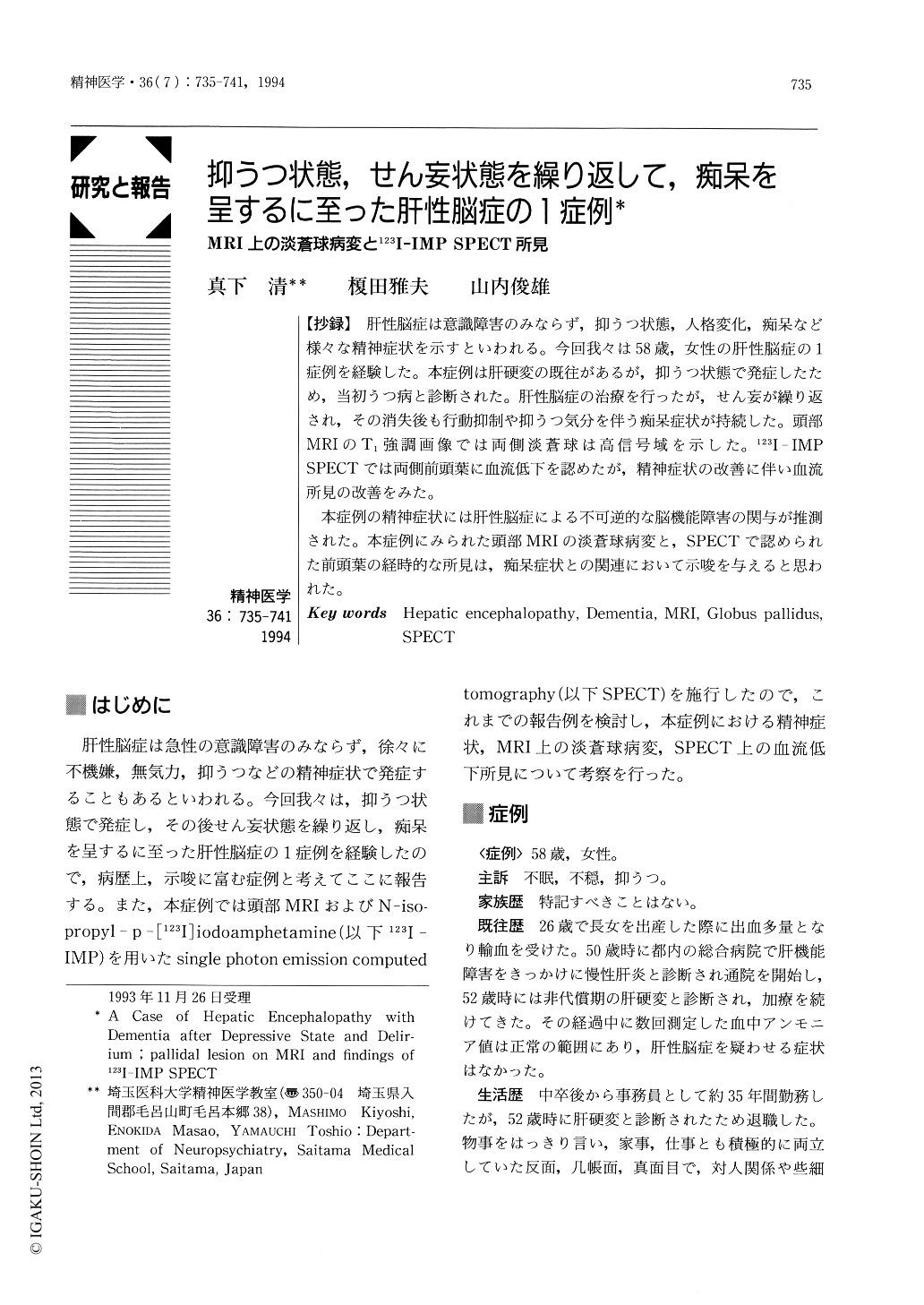Japanese
English
- 有料閲覧
- Abstract 文献概要
- 1ページ目 Look Inside
【抄録】 肝性脳症は意識障害のみならず,抑うつ状態,人格変化,痴呆など様々な精神症状を示すといわれる。今回我々は58歳,女性の肝性脳症の1症例を経験した。本症例は肝硬変の既往があるが,抑うつ状態で発症したため,当初うつ病と診断された。肝性脳症の治療を行ったが,せん妄が繰り返され,その消失後も行動抑制や抑うつ気分を伴う痴呆症状が持続した。頭部MRIのT1強調画像では両側淡蒼球は高信号域を示した。123I-IMP SPECTでは両側前頭葉に血流低下を認めたが,精神症状の改善に伴い血流所見の改善をみた。
本症例の精神症状には肝性脳症による不可逆的な脳機能障害の関与が推測された。本症例にみられた頭部MRIの淡蒼球病変と,SPECTで認められた前頭葉の経時的な所見は,痴呆症状との関連において示唆を与えると思われた。
Report of a case of hepatic encephalopathy (HE) which developed dementia in spite of treatment for HE. A 58-year old woman had suffered from liver cirrhosis for six years. She gradually developed HE which was initially diagnosed as depression. After several episodes of HE such as insomnia, unsteadiness and depressive state, she now remains in a state of dementia.
On MRI study, T1-high intensity on the bilateral globus pallidus was found. 123I-IMP SPECT study showed bilateral hypofrontality which, on reexamination after release from delirium, was found to have recovered slightly.
Several psychiatric symptoms such as depressive state, personality change and dementia as well as disturbance of consciousness have been reported in HE. According to the literature, pallidal lesion of T1-high intensity on MRI is a characteristic finding of HE.
It is suggested that pallidal lesion on MRI and hypofrontality on SPECT are related to the psychiatric symptoms and dementia in this case.

Copyright © 1994, Igaku-Shoin Ltd. All rights reserved.


